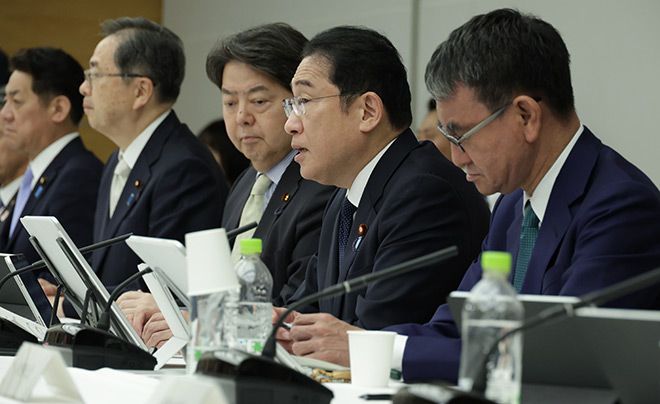The government announced the results of an inspection of its own fund projects and plans to review the national fund system.
This is certainly a first step towards correcting the runaway cost of fund projects, but there is still much work to be done.
To prevent waste of the national budget, there is a need to set effective rules and strengthen institutional arrangements to monitor the funding system.
The development of related legal systems should also be considered.
The Government Fund Project is a mechanism that allows ministries and agencies to secure a lump sum budget and spend it over multiple fiscal years.
The coronavirus pandemic has led to a chaotic proliferation of similar fund projects, expanding into areas such as decarbonization and economic security.
The total amount of government-funded projects has increased sevenfold in three years, with a total balance of approximately 17 trillion yen ($109.81 billion) as of the end of fiscal 2022.
In many cases, actual spending fell far short of overestimated projections, or large sums continued to be spent aimlessly and without critical scrutiny.
In some cases, core tasks for government fund projects, such as reviewing subsidies issued from government funds, were outsourced to private companies.
I am appalled at the lack of awareness by the officials involved that they are handling public funds.
The responsibility lies with the ministries and agencies that were complicit in the development and the politicians who promoted the project.
In light of the inspection, government officials have decided to scrap 15 of the 200 government-funded projects and have the government return an additional approximately 240 billion yen that is not expected to be used immediately. Stated. safe.
Although these measures are very reasonable, their scope is still too modest compared to the proliferation of state-funded projects over the past few years. Government funding systems should be continually examined.
According to government officials, over the next few years, government-funded projects will be required to set a completion deadline within 10 years, set concrete performance targets, and review their results.
It is said that there will be a three-year cap on future budget allocations.
The direction they have given is good, but what is more important is whether the authorities will implement it.
The proposed amendment is expected to face opposition from related ministries and the ruling party. As a result, there are lingering concerns that funds could self-interestedly set their own targets and reassess their own standards of achievement.
To prevent this from happening, it is necessary to ensure transparency by involving a third party. Arrangements should also be made to reduce or eliminate government-funded projects that fail to meet their targets.
The requirements for allowing the establishment of similar funds should also be tightened.
Under the current regulations, the system is aimed at government-subsidized projects that require flexible spending, such as the difficulty of predicting the amount spent each fiscal year.
However, the ambiguity of these provisions allowed government funding to proliferate in this chaotic manner.
The constitution stipulates that the national budget is subject to “deliberation and resolution'' by the Diet every fiscal year. Government-funded projects should be considered exceptional settings in the context of their stated purpose.
However, the requirements for establishing the fund and its operating rules are merely stipulated in government ordinances and cabinet decisions, and have become a mere formality.
Legislation needs to be put in place to define the basis of government funding systems and impose stricter discipline.
As recently as last fall, the government appropriated more than 4 trillion yen for nationally funded projects in the supplementary budget as part of its support for the semiconductor industry.
Officials should face up to the negative effects of huge investments in government funds and make a fundamental break from the too-easy approach they have taken thus far.
Abuse of the government funding system has the potential to undermine fiscal democracy, which says that how taxpayers' money is spent should be controlled by the people's representatives.
The National Assembly and the Board of Audit should recognize the seriousness of the problem and strengthen their oversight of the fund business system.
–Asahi Shimbun, April 24th


